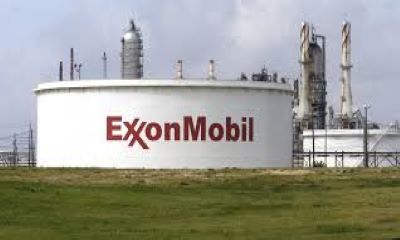Cash flow from operations was US$16 billion, up US$6.6 billion versus the second quarter

Exxon Mobil Corporation announced third quarter 2023 earnings of US$9.1 billion compared with second quarter earnings of US$7.9 billion due to strong operating performance, including record third quarter refining throughput as well as a higher crude price and industry refining margin environment. These factors were partly offset by weaker chemical margins, unfavorable derivative mark-to-market impacts and trading timing effects that are expected to unwind over time.
Cash flow from operations was US$16 billion, up US$6.6 billion versus the second quarter. The company achieved US$9 billion of cumulative structural cost savings versus 2019, ahead of schedule, with further savings expected by year-end.
In line with plans, capital and exploration expenditures were US$6 billion in the third quarter, bringing year-to-date 2023 expenditures to US$18.6 billion. Full-year capital and exploration expenditures are expected to be at the top end of the guidance of $23 billion to $25 billion as the company pursues value accretive opportunities.
The debt-to-capital ratio remained at 17% and the net-debt-to-capital ratio was 4%, reflecting a period-end cash balance of $33.0 billion.
The company continued to strengthen its portfolio with the closing of the Thailand refinery divestment in the third quarter. Total asset sales and divestments generated $0.9 billion of cash proceeds, bringing the year-to-date total to $3.1 billion.
“We delivered another quarter of strong operational performance, earnings and cash flows, adding nearly 80,000 net oil-equivalent barrels per day to support global supply3,” said Darren Woods, Chairman and Chief Executive Officer. “The organization's relentless focus on safety, environment and value is paying off – driving record refining throughputs, delivering big projects at first-quintile cost and schedule, and exceeding planned structural cost savings while reducing emissions intensity and the impact on the environment.
“The two transactions we've announced further underscore our ongoing commitment to the 'and' equation by continuing to meet the world's needs for energy and essential products while reducing emissions. Pioneer will help us grow supply to meet the world's energy needs with lower carbon intensity while Denbury improves our competitive position to economically reduce emissions in hard-to-decarbonize industries. Our disciplined operational and financial performance, combined with these strategic transactions, will strengthen our portfolio and position us to deliver profitable growth and attractive returns for many years to come.”
In July, the company entered into a definitive agreement to acquire Denbury Inc. The planned acquisition will provide ExxonMobil with one of the largest owned and operated carbon dioxide (CO2) pipeline networks in the United States. The combination will further expand ExxonMobil's ability to provide large-scale emission-reduction services to industrial customers. Denbury scheduled a shareholder vote for October 31, 2023, with the transaction expected to close in early November. The acquisition is an all-stock transaction valued at $4.9 billion, and the expected number of shares issuable in connection with the transaction is approximately 45 million.
In October, ExxonMobil announced an agreement to merge with Pioneer Natural Resources in a $59.5 billion all-stock transaction. The combination is expected to generate double-digit returns by recovering more resources, more efficiently, while accelerating emissions reductions
ExxonMobil has industry-leading plans to achieve net zero Scope 1 and 2 greenhouse gas emissions from its Permian unconventional operations by 2030. As part of the announced Pioneer merger, ExxonMobil plans to accelerate Pioneer’s net-zero Permian ambition to 2035 from 2050. In addition, using a combination of technology, operating capabilities, infrastructure, recycling, and water sharing, the company expects to increase the amount of water sourced from oil and gas production used in its Permian fracturing operations to more than 90% by 2030.
Subscribe to our newsletter & stay updated.